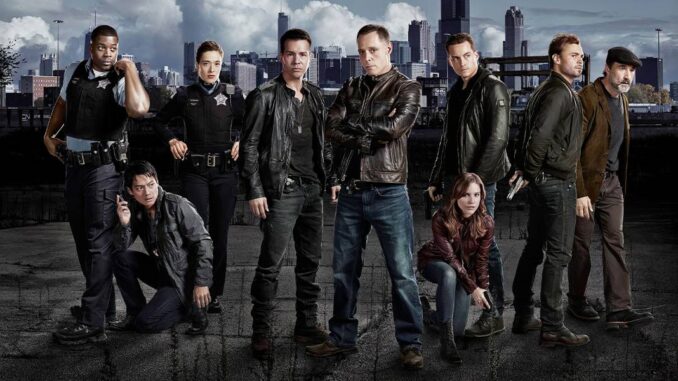
The Unflinching Gaze: Why Chicago PD Remains the Most Intense of the Franchise
The sprawling One Chicago universe, a television empire built on the everyday heroes of the Windy City, offers viewers a compelling triptych of dedication and danger. Chicago Fire plunges us into the heart of infernos, a symphony of sirens and selflessness. Chicago Med peels back the sterile layers of emergency rooms, revealing life-and-death decisions made in the blink of an eye. Yet, for all their thrilling rescues and gripping medical dramas, it is Chicago PD that consistently stakes its claim as the most intense, the most visceral, and the most profoundly unsettling entry in the franchise. Its distinction lies not just in the inherent peril of police work, but in its unflinching portrayal of moral ambiguity, the relentless toll on its characters, and a raw, gritty realism that burns long after the credits roll.
The primary reason for Chicago PD's unparalleled intensity is the very nature of the beast it portrays: law enforcement. While firefighters rush into burning buildings to save lives, and doctors fight to preserve them, the officers of District 21's Intelligence Unit are on the front lines of human depravity. They don't just react to crises; they confront the architects of chaos. Their daily grind involves infiltrating ruthless gangs, untangling horrific human trafficking rings, pursuing cold-blooded murderers, and staring down the barrel of a gun in back alleys. This is a world where the line between good and evil is constantly blurred, where split-second decisions dictate survival, and where every interaction carries the potential for fatal confrontation. Unlike the contained chaos of a burning building or an ER, the threats in Chicago PD are sentient, cunning, and actively hostile, making the stakes astronomically higher and the tension a constant, nagging thrum.
Central to this intensity is the show's controversial yet captivating moral compass, embodied by Sergeant Hank Voight. A man forged in the crucible of Chicago's underbelly, Voight operates in shades of grey so profound they often appear black. His "ends justify the means" philosophy, his willingness to bend or outright break the rules to achieve justice, is the beating heart of PD's ethical dilemma. We watch, conflicted, as he employs intimidation, coercion, and even violence, all in the name of protecting his city and his unit. This isn't the clear-cut heroism of a firefighter pulling a child from flames; it's a tightrope walk over an abyss, forcing viewers to grapple with uncomfortable questions about right and wrong in a world that rarely offers easy answers. The internal conflict within Voight, and the external pressure he constantly faces from Internal Affairs, adds layers of complex tension that Fire and Med, with their more straightforward heroic narratives, simply cannot replicate.
Furthermore, Chicago PD excels at showcasing the profound, often devastating, emotional and psychological toll that this brand of police work takes on its characters. We don't just see them chasing bad guys; we witness the cumulative trauma etched onto their faces, the unraveling of relationships under immense stress, and the subtle shifts in their humanity. Detective Erin Lindsay's struggles with her past, Adam Ruzek and Kim Burgess's on-again, off-again relationship constantly battered by the job's demands, and Hailey Upton's haunting battle with PTSD are not mere subplots; they are organic consequences of the relentless exposure to violence and despair. The show doesn't shy away from depicting the brokenness left in the wake of their battles, imbuing each character with a vulnerability that makes their moments of danger even more gut-wrenching. When a Chicago Fire character is injured, we fear for their life; when a Chicago PD character is traumatized, we fear for their soul.
Finally, the sheer unpredictability and raw physicality of Chicago PD keep viewers perpetually on edge. The show is rife with sudden, explosive violence, from ambushes in dimly lit alleys to high-speed chases through city streets. No character, it seems, is truly safe. Fan favorites have been killed off, careers have been jeopardized, and the consequences of their actions are always painfully real. This constant threat, the knowledge that any call could be their last, creates an almost unbearable level of suspense that rarely lets up. While Fire and Med have their moments of acute danger, PD maintains a baseline of simmering menace that can erupt without warning, making every episode a high-stakes gamble.
In essence, Chicago PD is a different beast from its sister shows. It's less about the dramatic rescue and more about the morally compromised hunt. It sacrifices the comforting clarity of unambiguous heroism for the grittier, more unsettling truth of those who police the shadows. It forces its audience to confront the difficult realities of justice in a broken world, leaving us not just entertained, but profoundly affected. For its unflinching gaze into the abyss, its complex characters, and its relentless, pulse-pounding narrative, Chicago PD stands alone as the most intense, and arguably the most compelling, entry in the ever-expanding One Chicago franchise.
